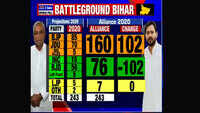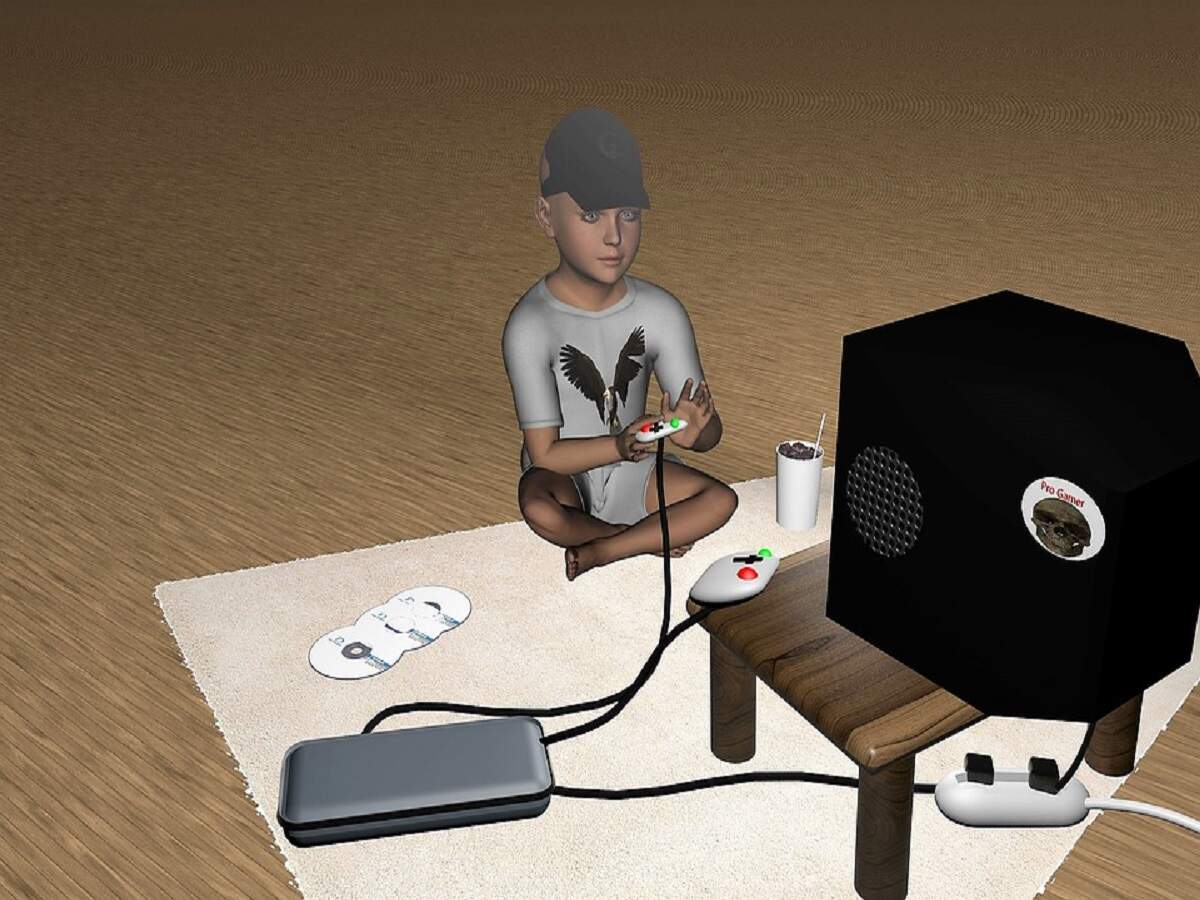
NEW DELHI: President Donald Trump will try to put his bout with Covid-19 behind him when he returns to the campaign trail on Monday. Meanwhile, the TV networks in the US are facing greater pressure than ever to report election results accurately and without unwarranted speculation.
Here is a look at the top developments —
Federal judge upholds Minnesota's extended ballot counting
A federal judge has upheld a Minnesota state court agreement that allows counting of absentee ballots received up to seven days after Election Day as long as they are postmarked on or before Election Day
Republicans had asked US district judge Nancy Brasel to block the seven-day extension that Democratic Secretary of State Steve Simon agreed to in state court after a citizens' rights group cited concerns about voter safety due to the Covid-19 pandemic. Ballots still must be postmarked on or before Election Day to be counted.
Trump tries to put Covid-19 behind him with campaign rally in Florida
President Donald Trump will try to put his bout with Covid-19 behind him when he returns to the campaign trail on Monday, beginning a three-week sprint to the Nov. 3 election with a rally in the vital battleground state of Florida. The event at an airport in Sanford, Florida, will be Trump's first campaign rally since he disclosed on Oct. 2 that he tested positive for Covid-19. Trump, who spent three days in the hospital for treatment, said on Sunday he was fully recovered and no longer infectious, but did not say directly whether he had tested negative for the virus.
US TV news networks aim for credibility, not speed, on election night
In preparing for election night, some top US television news executives see a cautionary tale in a notorious November evening two decades ago. After major networks projected Vice President Al Gore the winner in the crucial state of Florida, they pivoted in the wee hours to calling his Republican rival George W. Bush the next president. The margin was so slim, Gore conceded, then took it back an hour later.
In this year’s matchup between Republican US President Donald Trump and former Vice President Joe Biden, a Democrat, TV networks are facing greater pressure than ever to report election results accurately and without unwarranted speculation. Among the nation’s - and the networks’ - challenges are a president stoking fears of ballot fraud, a deeply divided electorate and the specter of a prolonged vote count, which raises the potential for protests, violence and lawsuits.
Harrison Raises $57 Million as Democratic Cash Floods Senate Races
Jaime Harrison, the Democrat challenging Sen. Lindsey Graham of South Carolina, raised an astonishing $57 million from July through September, the highest quarterly fundraising total for any Senate candidate in U.S. history and part of a flood of Democratic money remaking the battle for control of the Senate.
From South Carolina to Maine to Alaska, anger at President Donald Trump and his Republican allies has fueled a steady flow of cash to Democratic challengers all year. But Senate Republicans’ pledge to quickly replace Justice Ruth Bader Ginsburg on the Supreme Court, despite their blockade of President Barack Obama’s nominee in 2016, has enraged the Democratic base, and donations have surged to extraordinary levels.
Judge won't order immediate switch to hand-marked ballots
A federal judge on Sunday expressed serious concerns about Georgia's new election system but declined to order the state to abandon its touchscreen voting machines in favour of hand-marked paper ballots for the November election.
The ruling came in a lawsuit filed by voting integrity activists that challenges the election system the state bought last year from Dominion Voting Systems for more than $100 million.
The activists argued that the system places an unconstitutional burden on the right to vote because voters cannot be confident their vote is accurately counted.
(With inputs from agencies)
Here is a look at the top developments —
Federal judge upholds Minnesota's extended ballot counting
A federal judge has upheld a Minnesota state court agreement that allows counting of absentee ballots received up to seven days after Election Day as long as they are postmarked on or before Election Day
Republicans had asked US district judge Nancy Brasel to block the seven-day extension that Democratic Secretary of State Steve Simon agreed to in state court after a citizens' rights group cited concerns about voter safety due to the Covid-19 pandemic. Ballots still must be postmarked on or before Election Day to be counted.
Trump tries to put Covid-19 behind him with campaign rally in Florida
President Donald Trump will try to put his bout with Covid-19 behind him when he returns to the campaign trail on Monday, beginning a three-week sprint to the Nov. 3 election with a rally in the vital battleground state of Florida. The event at an airport in Sanford, Florida, will be Trump's first campaign rally since he disclosed on Oct. 2 that he tested positive for Covid-19. Trump, who spent three days in the hospital for treatment, said on Sunday he was fully recovered and no longer infectious, but did not say directly whether he had tested negative for the virus.
US TV news networks aim for credibility, not speed, on election night
In preparing for election night, some top US television news executives see a cautionary tale in a notorious November evening two decades ago. After major networks projected Vice President Al Gore the winner in the crucial state of Florida, they pivoted in the wee hours to calling his Republican rival George W. Bush the next president. The margin was so slim, Gore conceded, then took it back an hour later.
In this year’s matchup between Republican US President Donald Trump and former Vice President Joe Biden, a Democrat, TV networks are facing greater pressure than ever to report election results accurately and without unwarranted speculation. Among the nation’s - and the networks’ - challenges are a president stoking fears of ballot fraud, a deeply divided electorate and the specter of a prolonged vote count, which raises the potential for protests, violence and lawsuits.
Harrison Raises $57 Million as Democratic Cash Floods Senate Races
Jaime Harrison, the Democrat challenging Sen. Lindsey Graham of South Carolina, raised an astonishing $57 million from July through September, the highest quarterly fundraising total for any Senate candidate in U.S. history and part of a flood of Democratic money remaking the battle for control of the Senate.
From South Carolina to Maine to Alaska, anger at President Donald Trump and his Republican allies has fueled a steady flow of cash to Democratic challengers all year. But Senate Republicans’ pledge to quickly replace Justice Ruth Bader Ginsburg on the Supreme Court, despite their blockade of President Barack Obama’s nominee in 2016, has enraged the Democratic base, and donations have surged to extraordinary levels.
Judge won't order immediate switch to hand-marked ballots
A federal judge on Sunday expressed serious concerns about Georgia's new election system but declined to order the state to abandon its touchscreen voting machines in favour of hand-marked paper ballots for the November election.
The ruling came in a lawsuit filed by voting integrity activists that challenges the election system the state bought last year from Dominion Voting Systems for more than $100 million.
The activists argued that the system places an unconstitutional burden on the right to vote because voters cannot be confident their vote is accurately counted.
(With inputs from agencies)
Download
The Times of India News App for Latest India News

Coronavirus outbreak
Trending Topics
LATEST VIDEOS
India
 Depression in Bay of Bengal intensifies into deep depression, to cross Andhra Pradesh coast on October 13, says IMD
Depression in Bay of Bengal intensifies into deep depression, to cross Andhra Pradesh coast on October 13, says IMD  NDA set to win Bihar election: TIMES NOW-C-Voter opinion poll
NDA set to win Bihar election: TIMES NOW-C-Voter opinion poll  180 terrorists killed in 75 successful operations this year, informs J&K DGP
180 terrorists killed in 75 successful operations this year, informs J&K DGP  Rajnath Singh dedicates 44 bridges constructed by BRO to nation
Rajnath Singh dedicates 44 bridges constructed by BRO to nation  PM Modi releases Rs 100 commemorative coin in honour of Rajmata Vijaya Raje Scindia
PM Modi releases Rs 100 commemorative coin in honour of Rajmata Vijaya Raje Scindia  Ladakh will have 30-40 more bridges for better connectivity: BRO DG
Ladakh will have 30-40 more bridges for better connectivity: BRO DG
More from TOI
Navbharat Times
Featured Today in Travel
Quick Links
Coronavirus in MumbaiCoronavirus in KolkataCoronavirus in HyderabadCoronavirus in DelhiCoronavirus in BangaloreCoronavirus symptomsCoronavirus in IndiaBihar elections 2020Coronavirus NewsSolar EclipseNPRWhat is NRCCAB BillCAB and NRCRTI BillPodcast newsLok SabhaUS Election 2020CongressBJP newsUIDAIIndian ArmyISRO newsSupreme Court
Get the app



